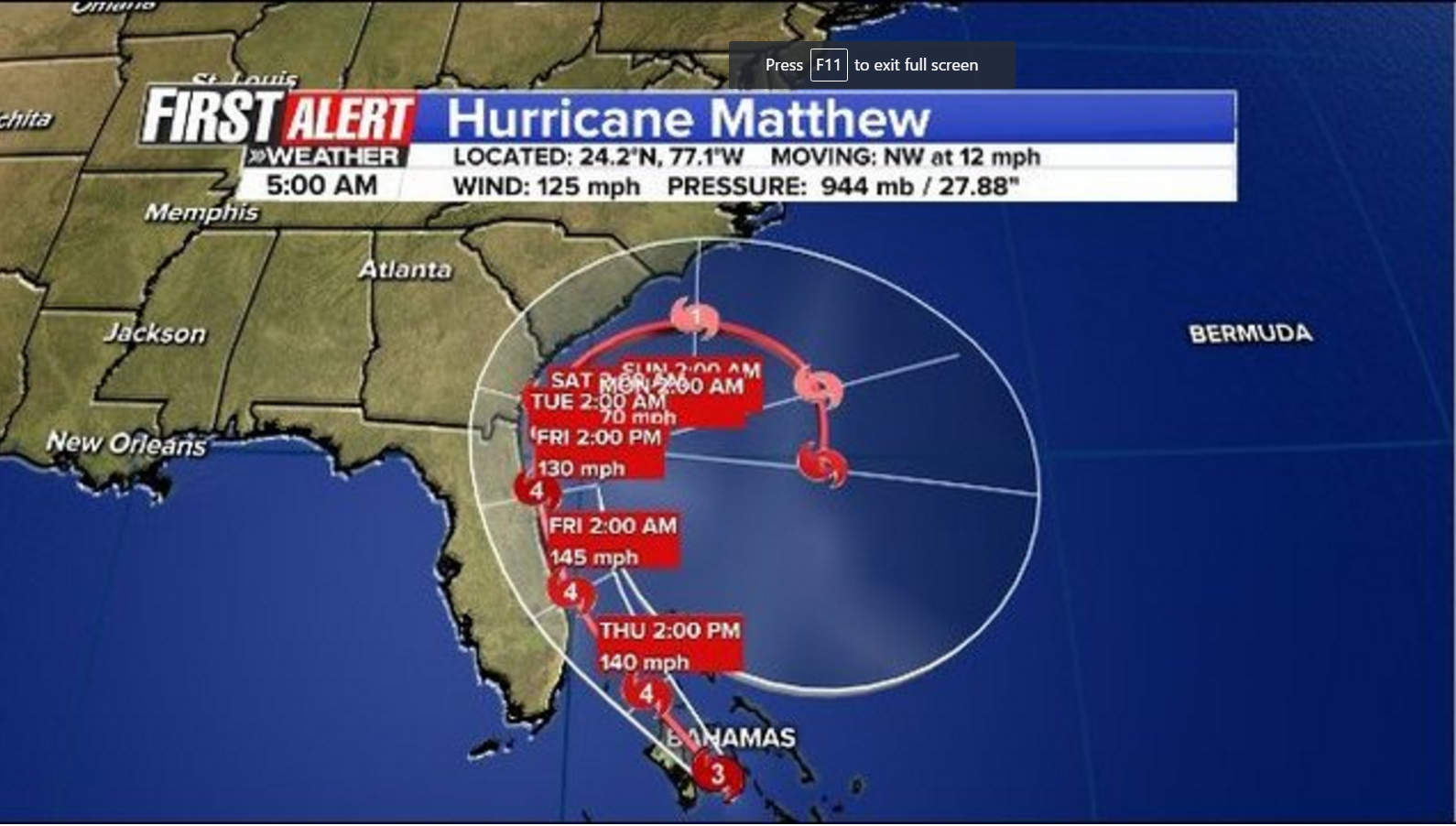
When you’re at risk from flooding, it’s important to get to high ground away from bodies of water and any flood-prone areas. Historically, about half of direct fatalities offsite link from hurricanes that make landfall in the U.S. With much of the United States' densely populated Atlantic and Gulf Coast coastlines less than 10 feet above mean sea level, the danger from storm surges is tremendous. This rise in water level can cause severe flooding in coastal areas. Storm surge is water that is pushed toward the shore by winds swirling around the storm. Though hurricanes are well known for strong and destructive winds, hurricane storm surge is the greatest threat. If you live in a low-lying or flood prone area, always have an evacuation plan before a storm begins. Always follow evacuation orders and never drive into flooded roadways. These rains can occur not only at the coast, but many miles inland, causing flooding that can continue for days or even weeks after a storm. The moisture cools as it rises and condenses into heavy rain, often much more than a typical low pressure system offsite link. In tropical cyclones, the air is particularly warm and can hold a tremendous amount of moisture. Warm air can hold more moisture than cool air. Be prepared to evacuate and do so immediately when ordered. Evacuation orders are released to ensure residents have enough time to leave vulnerable areas before the first hazards from the storm arrive. Local officials may issue evacuation orders before storm or storm surge watches or warnings are issued for your area. Even if you’ve previously survived a storm in your area, future hurricanes may bring different hazards. It’s critical to know your risk, especially if you live in a storm surge evacuation zone or in an area where flooding could occur. Conservation Service Corp Act Direct Hiring AuthorityĮach tropical system can bring a variety of unique, life-threatening hazards to a given location.Information for NOAA student opportunity alumni.About the education resource collections.

NOAA Sea to Sky: Education resource database.NOAA in your backyard: Education contacts near you.


 0 kommentar(er)
0 kommentar(er)
